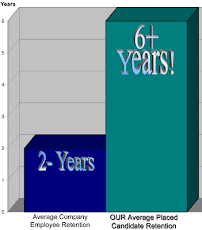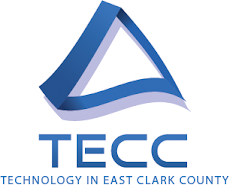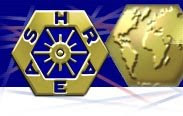Monday
Getting the Most from the ACT Conference When You are an Introvert
I am not a Type A personality.
In fact, I’d much rather be sitting behind my desk at the office than attending
a conference with thousands of people. Yet, like you, I realize the importance of
attending and networking at conferences – not only are you there representing
your company and your product/service, your take-aways are invaluable. You’ll
meet new people; potential colleagues, new resources and gain new ideas from
the workshops and from talking with other attendees and exhibitors.
Dharmesh Shah, CTO at HubSpot
published an article last year, which is relevant today.
I hope you find this article
helpful. If you want to connect at ACT this year, feel free to reach out – send
me an email or text me at the conference. I hope to see you there.
-Gary
Text: 3602815589
“Between one-third and one-half of the
people in the world are introverts.
Keep in mind being
introverted doesn’t necessarily mean you’re shy (although you certainly may
be.) Shyness is a lack of comfort in social settings and a fear of social
judgment.
Introversion has
more to do with how you respond to stimulation, where you draw your energy, and
how you recharge that energy. Extroverts crave stimulation; introverts feel
most alive and capable in quieter, low-key environments.
Neither is good or bad; they’re just different. The key is to
recognize the difference so you can put yourself in what Susan Cain, author of Quiet:
The Power of Introverts in a World That Can’t Stop Talking calls
your “zone of stimulation.” If you’re an introvert, your zone of stimulation
tends to be a quiet, private place.
Back to the “quiet
and privacy” thing.
Unfortunately,
quiet and privacy tend to be in short supply during the high-energy,
action-packed social swirl of a professional conference.
So how do you not
just survive but maximize your conference experience if you’re an introvert?
The key is to do a little planning (something introverts naturally do well),
take the right approach, and most importantly play to your strengths as an
introvert:
1. Proactively schedule quiet “recharging” time.
Conferences are
typically packed with action: Sessions, seminars, meetings, breakouts, meetups…
lots of “on” time that creates a serious energy drain for an introvert.
Extroverts
typically draw energy from others, while introverts typically recharge their
own mental and emotional batteries. So schedule some down time into your day to
help you recharge. (Susan calls those periods “restorative niches.”)
Plan to take a
quiet walk, or retreat to your room for thirty minutes, or to read materials
that help you prepare for a later session.
Whatever you do,
just find a way that works for you to disconnect from other humans and let
yourself recharge. That way you’ll stay fresh. And if you’re worried you’ll
miss something…
2. Tips For Recharging At A Session
This is going to sound a little strange, but it's actually
possible to recharge while attending a session.
Here's how I do it:
Pick a keynote
session where you know the audience will be relatively large. (Since your goal
is to disconnect from humans, you'll find that a larger audience creates a less
intimate setting — perfect in which to withdraw and be alone).
Come into the
session just a minute or so before it's scheduled to start. This minimizes the
chances you'll have to engage in conversation (people are much less likely to
talk to you once a speaker is on stage).
Find a quiet area (if it's not a packed room). Don't sit too
close to the front (because that creates a certain intimacy with the speaker —
and you're looking to be a bit more removed). I tend to prefer the back row —
but this often back-fires based on the size of the room. Frustratingly,
sometimes people in the back row insist on trying to have a conversation during a talk. I hate that.
Once you're
comfortably seated — pull out the laptop. In a large keynote, that's not rude —
in fact, these days, it's often expected and encouraged. Tweet comments and
quotes from the session. This has a dual advantage: First, it gives you a
chance to be heads-down into the talk — and much less likely that anyone will
approach you. Second, and more importantly, by tweeting during the session,
you'll find you make some connections to people (that are also tweeting). In
every keynote, there are usually a handful of people that are tweeting, and
you'll find yourself giving a virtual nod and hat-tip to a few of them. When I
live-tweet sessions, I almost always feel this connection to one or two people
— who I then recognize at some other time during the conference. Makes it much
easier to just say hello.
3. Try Inbound Networking.
Introverts tend to
work well alone and in small, familiar groups. If that’s you, it may be against
your nature to actively create new connections – even if those connections
could be incredibly beneficial.
So put your
planning skills to work. Determine the people you want to meet and connect
ahead of time online. Send a quick note saying you look forward to seeing that
person at the conference. That way you get plenty of time to craft your
“message” and make it perfect… and later you can simply walk up and say, “Hi,
I’m Dharmesh – it’s really great to meet you in person!”
Another approach: Write a blog post that identifies a list of
people you'd love to connect with at the conference. As an example, see my post
“Inbound Networking: 42 People I
Want To Connect With At SxSW”. This has several advantages: First,
without fear, it helps you identifywho you'd love
to meet — and why. Second, you might find that some of those people actually come
across your blog post and reach out to you (Internet FTW!). Third, though you
may not make a direct connection — you may
have friends/readers that know these people and volunteer to make an
introduction.
The power of this
inbound networking approach is that you don't have to interrupt anyone.
Connections happen organically. And, in the unlikely event that you don't
connect with any of the people on your list — what was the harm?
Everyone needs
great connections. Create a plan that ensures you can meet the people you most
want or need to meet.
4. Ask for introductions through others.
You want to meet
someone you didn’t know ahead of time you wanted to meet, but walking up alone
and “cold-meeting” a stranger is tough.
Standing beside a
friend while she introduces you to someone new is much easier, because it
allows her take care of the preliminaries: “Ann, I’d like you to meet my friend
Dharmesh. He’s the CTO of a marketing software company in Boston.”
Everyone you
already know knows at least one person you want or need to know. The best
connections are often made through colleagues and mutual acquaintances. Ask for
“referrals” from people you respect and provide them for people you respect –
and go out of your way to provide them for friends and colleagues who could use
the hand.
5. Attend at least one session you wouldn’t normally attend.
We all tend to
gravitate towards the people and information that validates our own
perspectives and points of view. It’s more comfortable – and potentially less
contentious or confrontational – to mingle with people who share our beliefs
and outlooks.
So if you attend a
conference with multiple speakers and a menu of sessions, for every two
sessions you choose that sound interesting, pick one session that you wouldn’t
normally attend. Purposely step outside your comfort zone. Commit ahead of time
to acting on at least one approach or strategy that you learn; that way you’ll
listen constructively instead of critically.
Then talk to
someone on the way out. Say, “You know, I walked in here thinking I wouldn’t
get anything out of (whatever topic)… but I was surprised by…” That’s all you
need to say to start a great conversation, because people love talking to
people who have seen their particular light.
6. Create plans for maximizing your return.
Many people return
from a conference with a bag full of schwag and a notebook full of scribbled
ideas, thought-starters, and takeaways. A couple days later the bag is in a
closet, the notebook is in a drawer… and it’s back to business as usual.
That’s especially
true for the introvert who comes home drained and exhausted; by the time you
recharge your batteries, your great ideas and new perspectives may have been lost.
This is one of the
ways your need for quiet time can be a real advantage. Use your quiet time to
think about and plan how you will maximize your return on the people you’ve
met, the ideas you’ve embraced, and the knowledge you’ve gained.
A conference can be
a great experience, but it shouldn’t just be an experience – it should, in ways
large and small, be life changing. Use your quiet time to make concrete plans
for how you will actually change your life.
I'd suggest blocking out a half day on your schedule immediately after the conference. Devote it to
“absorbing” some of your thoughts and learnings and coming up with a way to
apply them. Yes, yes, I know — you already spent 3 days away from the office,
and there are a hundred emails waiting for you. But, that 4 hours will be some
of the highest leverage time you ever spend. And, as it turns out, those emails
will still be waiting for you. In short, just block out
the time when you're planning for the conference — just pretend the conference is longer than it
is.
Speaking of blocking
out time, for introverts, somewhat longer conferences (3–4 days) are usually
easier than shorter conferences. The reason is that with a longer conference,
you have time to “settle in”, know your environment — and start getting to know
some people and faces. With a 1 or 2 day conference, by the time any of that
happens, you're heading back out again.
7. Gear up for when you’ll need the most energy.
Maybe you’re
leading a seminar. Maybe there’s a social gathering with key customers and
you’ll need to be especially “on.” Maybe there’s a user group session where you
need to interact and totally engage.
Plan ahead.
Schedule a recharge period immediately before. Go to a session where you know
you’ll only have to listen. Have a quiet lunch instead of a group meal. Every
session, every event, every meeting is important… but some are more important
than others. Make sure you have the mental and social energy you need when you
need it most.
8. Always, always do what you do best.
Most introverts are
great listeners, especially in one-on-one settings. Use that skill to your
advantage. Listen. Ask insightful questions. Ask a person how they did what
they did. Or why. Or what they learned from doing it, or liked about doing it.
Asking real questions – and paying attention to the answers – is one of the
greatest compliments you can give.
And it’s one of the
best ways to make real connections – and real friends."
Subscribe to:
Comments (Atom)













